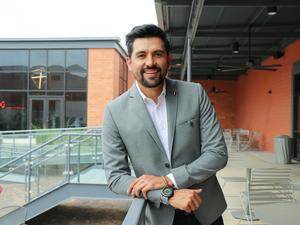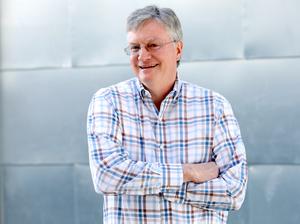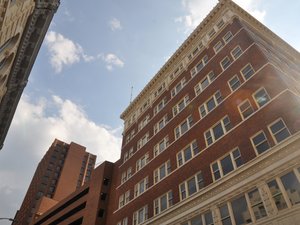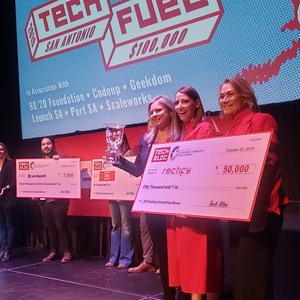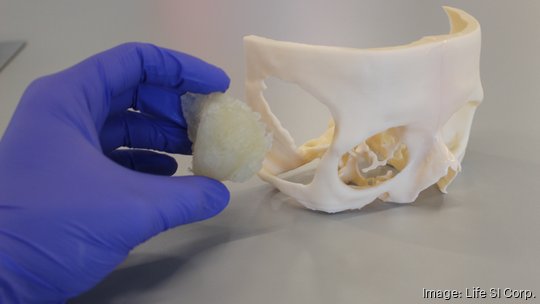
Argentinian 3D bioprinting company Life SI has opened its first United States lab in San Antonio.
Life SI CEO Aden "Adi" Díaz Nocera announced in March the opening of the company's first tissue engineering lab in the U.S. at VelocityTX's Innovation Center — a 17,000-square-foot facility located on San Antonio's East Side.
Life SI, founded in 2015, is the first Argentinian 3D bioprinting company, according to its LinkedIn page. It has three labs — one in the United States and two in Córdoba, Argentina.
Nocera said Life SI's first experience of San Antonio came from participating in VelocityTX's BioGlobal Accelerator Program, a six-week collaborative accelerator specialized to help early-stage bioscience companies scale their technology.
"We found that this is a city with a lot of potential for biotechnology in our field," Nocera told the San Antonio Business Journal. "I think [San Antonio] has a lot of potential, and it is growing very fast ... We wanted to be part of that growth."
Life SI sells 3D bioprinters and microfluidics systems and uses that revenue to fund the development of new applications using bioprinting technology.
"One of them is to create tissue from real patient cells, [which] we are already working on with cartilage," Nocera said.
Creating tissue from human cells in a laboratory has multiple short-term and long-term applications, according to Nocera. What Life SI is working on and plans to take to market this year is a human skin model that will allow cosmetic companies to ethically test their products.
"Instead of using animal models, we are presenting an alternative," Nocera said. "In the case of the skin model, we use [skin] cell lines as cells that we come by for research," Nocera explained. "We cut through them in one layer, so we expose that layer to new cosmetics. Then we assess how the cells respond to the cosmetics, and we can anticipate if it's going to be harm[ful] for real people."
Nocera said Life SI is also working on deep learning software to predict the outcome of new drugs before they go to clinical trial.
"Pharmaceutical companies lose a lot of time, a lot of money in the development of new drugs," Nocera said. "If we can get them a new tool for predicting the outcomes, I think it's going to be a huge change in drug development."
Nocera said Life SI plans on going to market with the software by the end of 2024.
And while Life SI is primarily focused on the Argentinian market, Nocera noted that it is in conversation with a San Antonio company right now, which he declined to name.
The conversation is part of Life SI's new strategy that involves branching out outside of its university partnerships and working with clients in the private sector — a strategy which appears to have paid off, given that the company broke even last year.
"Usually they (biotech companies) start doing all the development, they raise money, and after seven to 10 years, they start getting revenue, and they go to market," Nocera said. "In our case, that took us two years."
David Fonseca, CEO of VelocityTX, said Velocity's international partnership strategy has "yielded great results with the arrival of Life SI."
"Companies are recognizing the value of establishing a presence in our Alamo City, which boasts a strong focus on Life Sciences. This is due, in part, to our exceptional institutions that specialize in Military Medical innovations, cancer therapeutics, and trauma," Fonseca said. "We look forward to working closely with Life SI and other companies that choose to join our vibrant community."
Life SI has eight employees, according to LinkedIn. Its main product is the 3-D Res Bioprinter, which offers syringe automated calibration, dynamic modules, bed temperature control, and a touchscreen interface for real-time setting. Life SI's clients include ZEV Biotech, NovoSens, the National Scientific and Technical Research Council - Argentina (CONICET), and several university systems across South America.
